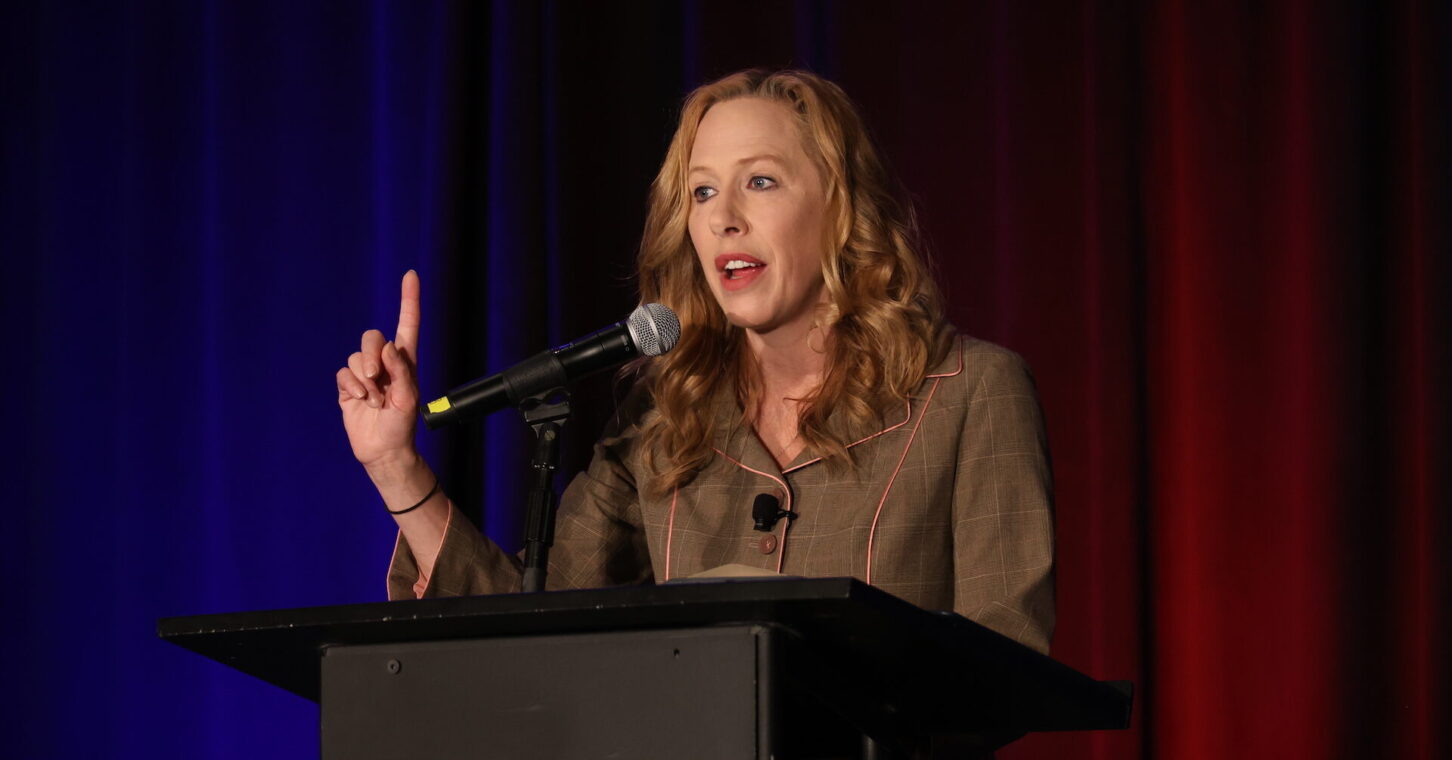
Kimberley Strassel, a member of The Wall Street Journal’s editorial board, was the keynote speaker at this year’s annual Georgia Freedom Dinner hosted by the Georgia Public Policy Foundation.
Strassel’s writing, especially her weekly “Potomac Watch” column, typically involves national politics and the federal government. And while that may seem only partly related to a state policy organization’s work, her perspective proved insightful not only in relation to the work we do, but for what all of us can do for a stronger republic.
In her speech to the Foundation, its board, donors and supporters, Strassel pointed out a few things that are apparent to Americans every day: The federal government is a mess. Executive power has been creeping for over a century. Congress, when it exercises its power that hasn’t already been ceded to the executive, is frequently ineffective. Out of control spending, inefficient bureaucracy and legislative hang-ups have negatively impacted American life from cost of living to personal freedoms and even the effectiveness of our armed forces.
Strassel noted that Congress is very good at spending our money. As far as real policy changes, there aren’t many to speak of. Even the recent foreign aid to Ukraine and Israel does not constitute a policy change, but merely a decision of whether or not to spend money. For actual policy changes, we might have to look as far back as the tax cuts under the Trump administration, or even Obamacare, a policy Republicans ran for years on undoing, failing to do so.
Strassel explained that at the federal level most of the change we can hope for, or against, would come from the executive branch, such as executive orders. This is not exactly the happiest prospect for fans of limited government.
Despite the apparent bleakness of this prospect, many people fail to take the next logical step in affecting change: Instead of repeatedly pushing the rock up the hill that is the federal government, Strassel urges us to think more locally.
“Go to your local school board meeting. Go find out who is running for state senate in your district. Go find out who your mayor is and what their agenda is.” Strassel calls upon us to learn more about local elections, local judges and local bureaucrats whose decisions affect our everyday lives. “Find out whether or not they deserve to keep their jobs.”
America’s federalist structure allows local autonomy that leads to many differences between communities. This ensures that individuals have more influence in shaping their communities and in improving their lives locally.
This also applies to the states. State policies on economic and social issues alike have wrought very different landscapes across the country.
“We are a republic, and that means we compete,” says Strassel. While national unity certainly has durable value, Georgians can be grateful that we don’t take our cues from, say, New York. Especially new Georgians.
One example of this competition in action was the response to COVID lockdowns. Stassel says, “Terrible [federal] policies not only required states to think innovatively to rescue their economies and get things going again, but they reminded them that Americans have a means of rejecting bad policies that doesn’t just rest at the ballot box. Americans have a more immediate way of expressing disapproval. They leave.”
There are several ways to reflect the fact that work is getting done at the state level here in Georgia. One of the more obvious ways is highlighting migration to the Peach State, especially from states with liberal policies like California and New York. Georgia’s business-friendly and freedom-minded policy environment has strengthened the state’s economy and made it an attractive destination for decades.
For the Foundation, the Freedom Dinner was an opportunity to reflect on how our work and the work of our partners, from lawmakers to partner organizations, has paid off.
For 10 years, the Foundation and its friends in the school choice movement have worked to provide options for Georgia students. The Georgia Promise Scholarship Act, when it launches next year, could serve over 20,000 students. The Foundation has also worked hard to end laws that restrict the provision of healthcare for Georgians, and this year, the General Assembly passed legislation to reform certificate of need laws – specifically laws that had been highlighted by the Foundation. This year’s session also saw an acceleration of income tax rate cuts and protections granted to Georgia workers.
But credit for the progress made in Georgia does not only belong to us Georgians. It’s also thanks in part to the American system. A federalist republic both allows autonomy and drives innovation.
Despite a somewhat bleak outlook on an ever-growing federal government, out of control federal spending and bureaucratic inefficiency, there is a measured dose of optimism to Stassel’s message: This American system still allows us to innovate, to think creatively and to come up with solutions that work for us. We can reject bad policies and we can resist overreach. We can make our voices heard.
The federal government may be a mess, but in Georgia, things are getting done. The Georgia Freedom Dinner is a chance to reflect, but not to rest. We’re only getting started here. Ending her speech, Strassel notes, “There are no organizations that on a daily basis accomplish more and do more for what we care about than local and state activist groups that materially improve our constitutional republic and our civic health and the well-being of our citizens.”